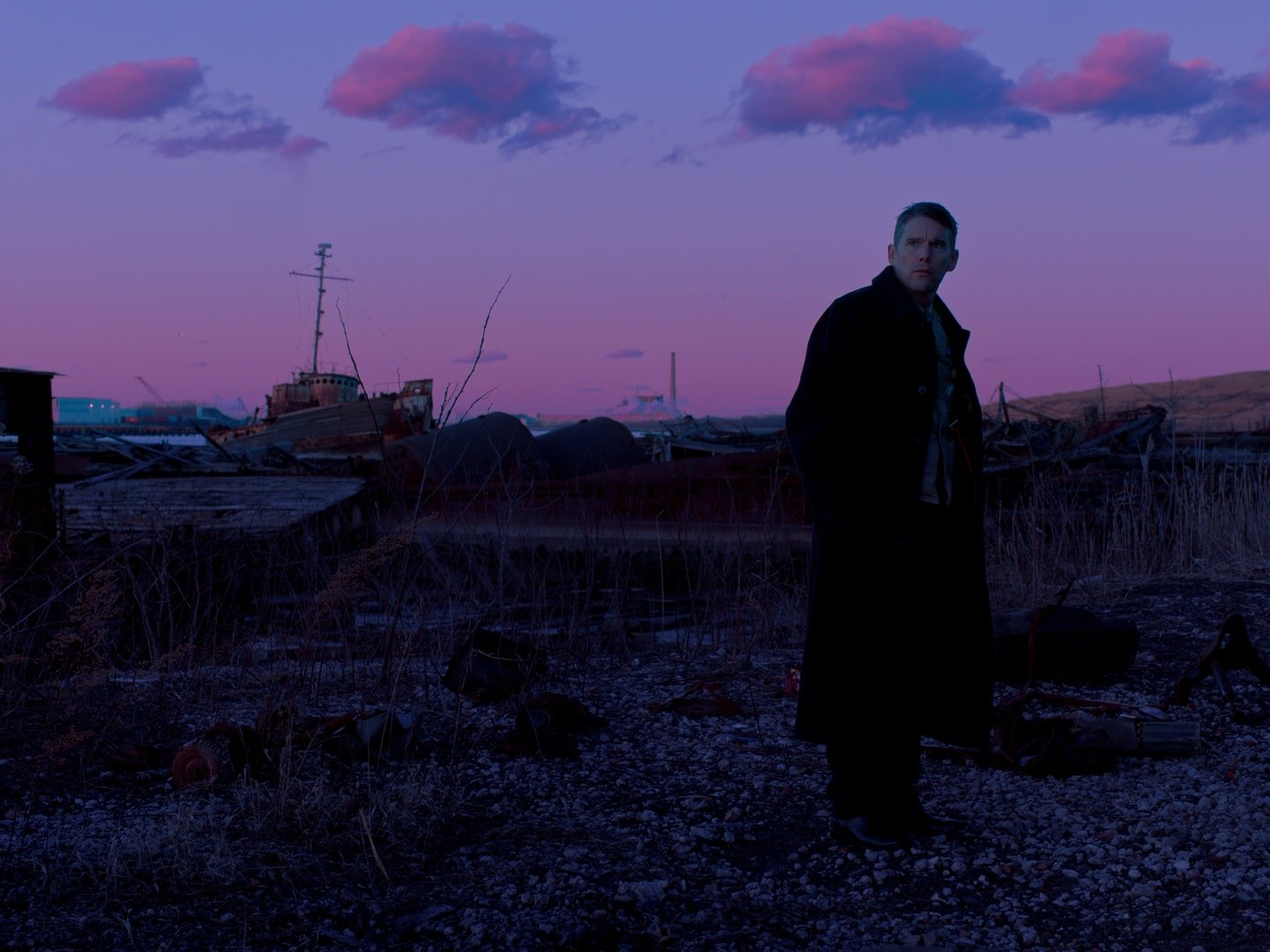‘First Reformed’ | Film Review


Paul Schrader is a classic figure in American film. But not so classic that you don’t have to start a review reminding people of that fact. “No reminder needed” is an echelon reserved for the Scorseses and Tarantinos of the world. The writing partners on some of their best work — your Roger Avarys and Paul Schraders — have spent many years after their transgressive touchstones searching for the right ways to transgress again.
In the decades since writing Taxi Driver, co-penning Raging Bull, and helming American Gigolo, Schrader has continued to make movies about quintessentially masculine paranoia and dementia, even if the public stopped paying much attention. He teamed a couple more times with Martin Scorsese on The Last Temptation of Christ and Bringing Out The Dead. And 1997’s Affliction burns slowly in the hearts of some hardcore Schrader fans. More recent swings like Dying of the Light and The Canyons just felt like paying the bills on the low-rent, blackhearted side of genre filmmaking.
So to be blunt, the first, best sign of quality for Schrader’s new First Reformed is that it comes out via A24, the indie studio that’s hit with Moonlight, Ladybird, and It Comes At Night in recent years and can be trusted almost like a well-curated record label when it comes to delivering compelling artistic fare. That promise makes good in this magnum opus for Schrader’s favorite themes. Righteousness forces its way upward like a sapling in a wasteland. And trouble comes to righteousness’ flawed servant, though this time through a more tenable, poetic vessel than a hateful boxer or cab driver.
First Reformed stars Ethan Hawke as Reverend Toller, the lonesome custodian of a colonial-era Upstate New York church. With a plot spurred on by Toller called to counsel a depressed environmental activist, the story unfolds via the reverend’s personal diary (a framing device Schrader is repeating from Taxi Driver). The diary is a modest little notebook written in nightly by a modest little man. But we quickly find both the reverend and his journal entries are fueled by enough loathing and bourbon to give us pause. It is a Paul Schrader film, after all.
Toller’s simple and spare life is encircled by a small constellation of people who reveal his values and limits. Across the way from First Reformed, Pastor Jeffers (Cedric The Entertainer) runs the Abundant Life mega-church with its simulcasts and Christian rock bands. The despondent activist Michael (Philip Etinger) and his pregnant wife Mary (Amanda Seyfried) are locked in a quiet battle over whether the world is fit for new life. Esther (Victoria Hill) is a coworker of Toller’s who, against his wishes, would like to be something more.
It’s obvious from the outset that the events to follow will test Toller’s faith. But it’s not a pass-fail test, and the movie shines in examining the prism of free thought that exists within faith. I, for one, am often guilty of contemplating religion only as it relates to politics (read: conservatism), but First Reformed comes from a deeper, existential place with questions about how devotion stands up to greed, entitlement, radicalism, the internet, and the compromises the vast majority of us make to live in the modern world. To really pin the tail on the issue, Toller begins to wonder if the faithful should not be the most righteous in defending God’s earth from man-made catastrophes like pollution and climate change.
It’s a deeply thought-provoking script but not a flashy one, and First Reformed hangs everything on Ethan Hawke’s ability to bear a cross. Hawke responds with one of the best performances of his career — slowly transforming Toller from wounded to inflamed, from a man who quotes Romans to one who quotes Revelations. Hawke has evocatively executed character transformations in everything from Training Day to the Before trilogy to Born To Be Blue, but never with the irony of a character who’s entire existence is defined by confronting turmoil through faith, but is losing it all the same. Of course, Hawke plays this loss of control — the nudge off the cliff into either blissful freedom or grotesque anarchy, depending on your perspective — with complete control.
During their initial meeting, Toller advises Michael, the despondent environmentalist, that the ability to hold two truths in your mind at the same time is the essence of any bearable human existence. Yet Schrader understands that humans no longer willing to concede the duality between hope and despair make the best subjects for tragedy.
That was true 42 years ago when Taxi Driver’s Travis Bickle uttered Schrader’s words, “You’re only as healthy as you feel.” It’s true now when we face daily questions on how believing or not believing in countless constructed realities shapes who we are. (You know Bickle would be lurking somewhere on the worst imaginable subReddits in 2018.) Our priestly protagonist is self-actualizing as he radicalizes, sure, but it’s highly debatable whether that’s a good thing. If he listens closer and closer to the sounds of his soul, to the will of his god, is he becoming a more authentic self or leaving humanity behind? What if the answer is both?
And if Bickle was the simmering worst of the quiet American and Toller is the suffering ideal, then the true horror is that in this light, who can tell the difference?
-Chance Solem-Pfeifer



